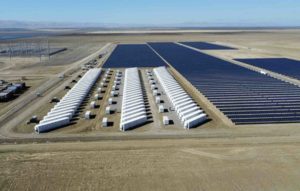
As reported in Renew Economy yesterday, a global assessment of the energy efficiency of the world’s biggest energy consumers has put Australia at the back of the class.
The 2016 International Energy Efficiency Scorecard – produced by respected US think tank the American Council for an Energy-Efficient Economy (ACEEE) – ranked Australia 16 out of 23 countries in a comprehensive assessment that took into account both energy efficiency performance and policy settings.
The ACEEE’s Scorecard underlines the cold hard fact that Australia has fallen well behind our global competitors on energy efficiency; in fact we’re languishing in the same group as Russia, Mexico, Indonesia and Thailand.
ACEEE’s assessment took into account energy efficiency performance metrics in the building, industrial and transport sectors, as well as government commitments and actions on best practice policy.
Australia’s performance on building efficiency is reasonable, ranking 9th out of 23 countries. However our score for industrial energy efficiency is woeful; out of 23 nations Australia ranked 21st. Brazil, Mexico and Russia all performed better than Australia on industrial efficiency, and only South Africa and Saudi Arabia performed worse.
There are several reasons that Australia lags behind other wealthy countries on energy efficiency. Notably, our governments have historically been reluctant to adopt standards that drive energy efficiency, and the sad reality that our electricity regulations are a mess.
Electricity bills have risen faster in Australia than in almost any other country and, as we know, its had nothing to do with the (now defunct) carbon price.
We undercharge the energy-guzzling homes that push up electricity costs for everyone, and overcharge households that use energy efficiently. We let large monopolies spend too much on the networks that supply electricity (more than $35 billion in five years), but make it hard for experts to lower energy bills.
Governments have known about these problems for years. A report for the Council of Australian Governments in 2002 concluded that our energy market encourages too much spending on supplying energy and too little on smarter energy use. Two recent Senate inquiries found serious flaws in our energy market regulations. Even the Productivity Commission believes that our electricity network regulations are broken.
Regulators have tinkered around the edges, but haven’t made the major changes to our electricity regulations that we need. Just last week an organisation that fights for consumer rights, the Consumer Action Law Centre, slammed our electricity system for putting networks’ profits ahead of consumers’ interests.
Smarter energy use won’t just result in lower bills. Energy efficiency can deliver more than half of Australia’s 2030 carbon reduction target and support the shift to renewable generation.
There are also huge economic opportunities – the global market for energy efficient services and products is valued at more than $470 billion a year, and in California – a state that has had effective energy efficiency policies in place for decades – there are over 321,000 people employed in energy efficiency.
Yet successive federal governments have largely ignored energy efficiency.
To his credit, the new Minister for Environment and Energy, Josh Frydenberg, has moved energy efficiency to the top of the agenda. Last year, as Minister for Energy and Resources, he set a target to improve Australia’s energy productivity (the ratio of economic output per unit of energy) by 40 per cent by 2030.
However, we’ll fail to meet that target unless we take substantive action to reform our energy markets and significantly improve Australia’s energy efficiency policies.
This week, the Energy Efficiency Council released the Australian Energy Efficiency Policy Handbook, which aims to kick-start a discussion about the actions necessary to meet Australia’s energy productivity target, and sets out a suite of evidence-based recommendations.
The main message in the Handbook is that we have to lift our game. Australia’s consistently poor rankings for smart energy use are a direct result of energy efficiency being an afterthought in our energy policy.
Priority actions from the Handbook
The Australian Energy Efficiency Policy Handbook provides a long term framework for policy, but the task before us is urgent, so it is accompanied by a short document that outlines nine immediate priorities for government action on energy efficiency. These priorities are split into Sectoral and Cross-sectoral policies
The ‘Sectoral’ policy recommendations are:
- Reduce governments’ energy bills by adopting programs like the NSW Government Resource Efficiency Policy, which drives investment in upgrades to schools, hospitals and infrastructure.
- Modernise manufacturing by supporting companies to adopt new technologies and improve their overall productivity.
- Transform offices by investing at least $10 million a year through COAG to engage building owners and help them provide more efficient, healthy and productive workplaces.
- Inform and protect home buyers and renters by developing a national scheme to disclose the energy efficiency of new and existing homes.
The ‘Cross-sectoral’ policy recommendations, which would deliver benefits to homes and businesses, are:
- Implement fair and efficient electricity tariff structures by working with consumers and industry to design best practice tariffs that deliver the right balance of investment in energy supply, networks and demand reduction.
- Improve electricity network regulations by encouraging increased investment in demand management and improved oversight of networks’ interactions with consumers and energy service providers.
- Strengthen and extend energy efficiency certificate schemes by harmonising and extending schemes across all jurisdictions.
- Improve standards for appliances, buildings and vehicles by streamlining standard-setting processes and introducing vehicle standards.
- Ensure Australia taps into the $470 billion global energy efficiency market by investing in training and innovation, and by harmonising Asia-Pacific certifications and metrics to build a market for Australian products and services.
Quick action in these priority areas is the best way to begin the climb back up the international energy efficiency rankings.
However if these priority areas are neglected, Australia will continue to fall behind while leaders like Germany (number one in the ACEEE’s rankings) take an integrated approach, investing in energy efficiency, battery storage and low carbon generation at the same time.
ClimateWorks Australia CEO Anna Skarbek is absolutely right – we need to start thinking about the transition to renewables and energy efficiency opportunities in an integrated way.
If we do the benefits will be immense – a stronger economy, new export industries, more comfortable homes and workplaces, and a clear pathway towards a zero carbon future.
Luke Menzel is CEO of the Energy Efficiency Council.








